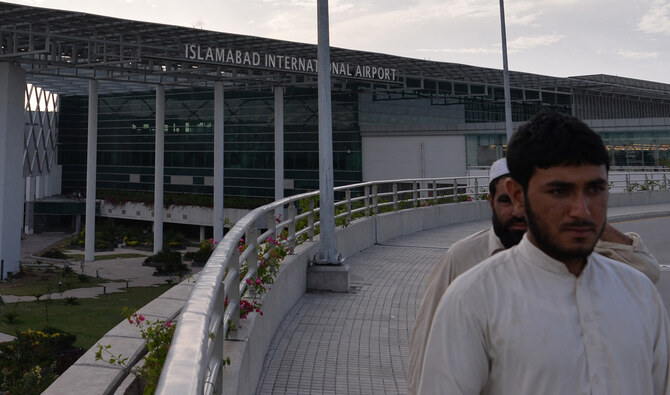ISLAMABAD: Pakistan President Arif Alvi on Saturday returned a bill to parliament that was aimed at curtailing the powers of the country’s top judge, amid a constitutional tiff between the government and the judiciary.
Pakistan’s parliament last month approved the new legislation, the Supreme Court (Practice and Procedure) Act, 2023, that came after the top court took a suo motu notice of the Election Commission of Pakistan (ECP) delaying polls in Punjab and Khyber Pakhtunkhwa provinces, which account for more than half of the country’s 220 million people.
In the past, Pakistani chief justices have used the suo motu provision to launch inquiries ranging from payments to sugarcane farmers by industry owners and increase in milk prices to allegations of corruption in the running of the country’s steel mills, railways and national airline.
The bill was forwarded to the president to be signed into a law, but Alvi returned it to parliament for “reconsideration,” according to a tweet on his official account.
“The Bill prima-facie travels beyond the competence of the parliament and can be assailed as a colorable legislation,” it read.
The draft bill sought to amend laws regarding the conduct of the top court and suggested setting up a three-member panel headed by the chief justice to take up suo motu cases.
The crisis, widely seen as a tussle between the top court and the government of Prime Minister Shehbaz Sharif, stems from Chief Justice Umar Ata Bandial on February 23 taking suo motu notice of a delay in elections in Punjab and Khyber Pakhtunkhwa provinces, where legislative assemblies were dissolved in January by ex-PM Imran Khan and his allies.
The move was part of Khan’s bid to force early general elections, since Pakista historically holds the provincial and national elections together. According to Pakistan’s constitution, elections must be held within 90 days of the dissolution of a legislative assembly.
The top court this week ordered polls in Punjab on May 14, with the government refusing to accept the verdict. The ruling party maintains the three judges who announced the decision have been “biased” against it, leading to a constitutional crisis in the South Asian country already suffering from economic woes.
On Friday, Sharif’s party also demanded Chief Justice Umar Ata Bandial step down from his post over what it said were “flagrant violations of the law and the constitution.”
The development came after Supreme Court Justice Athar Minallah called on the judiciary to exercise “extreme restraint” in entertaining political questions, since a perception of bias on the part of the top court eroded public confidence.
Justice Minallah was among the four judges who had earlier rejected the suo motu case on elections in Punjab and Khyber Pakhtunkhwa (KP) provinces, but a three-member bench, led by Chief Justice Umar Ata Bandial, later ordered polls in Punjab.
“CJP Umar Ata Bandiyal has committed flagrant violations of law & constitution to favor Imran Khan/Pakistan Tehreek-e-Insaf. This blatant abuse of authority has led to an unprecedented revolt-like situation in the Supreme Court of Pakistan,” Maryam Nawaz, chief organizer of Sharif’s party, said in a series of tweets.
“Judges of impeccable repute have raised serious questions on the chief justice’s conduct & bias. No chief justice has ever been accused of such misconduct. His tilt toward PTI is glaring. CJP Bandiyal must RESIGN.”
The government says it is economically not viable to hold the snap elections in Punjab and Khyber Pakhtunkhwa first and then have another general election this year in October.
















